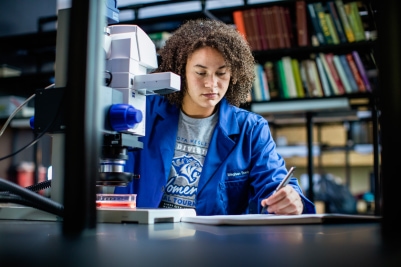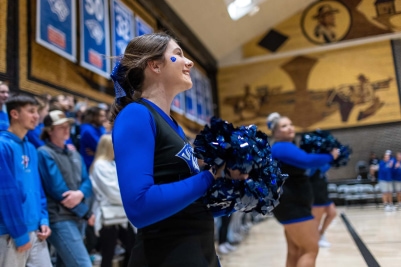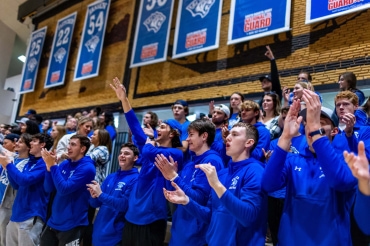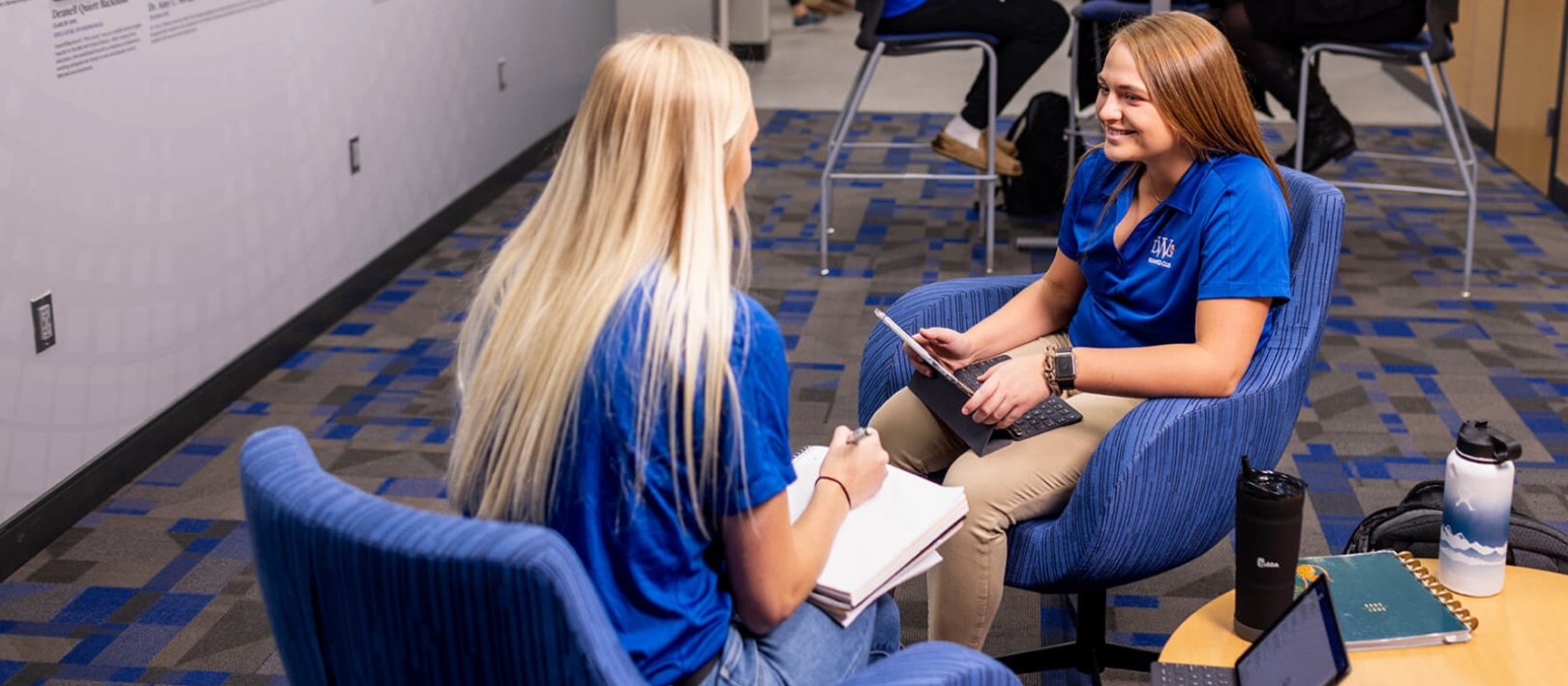Forensic Science & Investigation
Investigate Crime with Confidence
What careers will you find using your forensic science and investigation minor?
Grow your skills to enter fields such as:
Criminal investigator
Forensic Anthropology
Detective
Forensic Science Courses
Curious what courses you'll complete? You'll review topics such as:
CHM 164 University Chemistry
Prerequisite: MTH 125 or equivalent is recommended.
CHM 166 University Chemistry Lab
Prerequisite or corequisite: CHM 164
CHM 174 Organic and Biochemistry
CHM 323 Analytical Chemistry
Prerequisite: CHM 164/166 or CHM 174/174L
Corequisite: CHM 323L
CRJ 210 Introduction to Criminal Justice
CRJ 258 Criminology
CRJ 261 Criminal Law
CRJ 357 Corrections
CRJ 365 Criminal Evidence
CRJ 385 Criminal Investigation
Get to Know Your Professors
Learn how to study evidence! Our low student-to-teacher ratio offers valuable one-on-one interaction.
Bethany Melroe Lehrman, Ph.D.
Joel Reinesch, M.A.
Paula Mazzer, Ph.D.
DWU will prepare you for the most important emerging careers in science
Explore majors you may want to pursue.
Related Majors & Minors
Criminal Justice
Discover ways to use your talents for law, law enforcement, juvenile support, corrections, court reporting or many other ways that are a part of the United States legal system.
Chemistry
If problem solving is your thing, you'll fit right in at DWU.
Biochemistry
Explore the living things around you, while you investigate the complexity of life processes in animals and plants.
Psychology
Our psychology major will take you on an exploration of human behavior from biological, behavioral, cognitive, social and cultural viewpoints.














